Mining
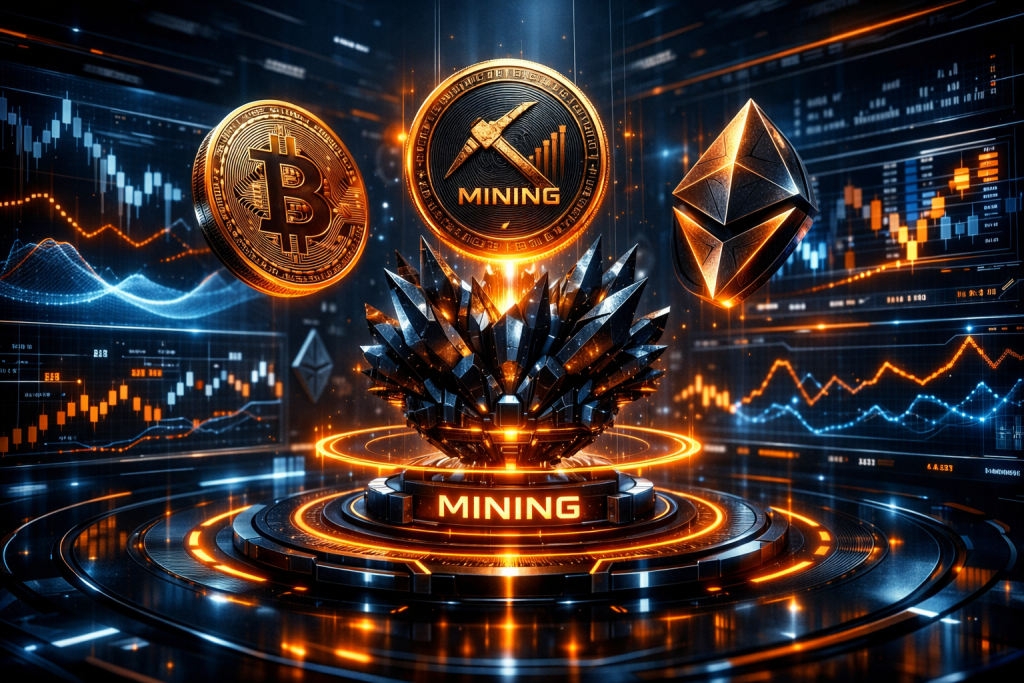
Mining refers to the process of creating new units of cryptocurrency and verifying transactions on the blockchain through computational power. It is an essential pillar of decentralised cryptocurrencies, ensuring network security and maintaining trust in the system.
At its core, mining involves solving complex mathematical problems to add a new block to the blockchain, with miners receiving rewards in the form of newly minted coins and transaction fees.
One of the biggest challenges facing mining is its enormous energy consumption. The intensive computational tasks required to solve cryptographic puzzles result in high electricity costs.
While cryptocurrencies are fundamentally based on decentralisation, large-scale mining farms and mining pools can concentrate significant power, raising concerns about centralisation. This creates the risk that a small number of players could wield disproportionate influence over the network.
As time progresses, the difficulty of mining increases, making the process more costly and demanding higher volumes of computational resources. Smaller miners often struggle to stay competitive and are forced either to join mining pools or exit the market altogether.
Despite these high energy demands, many companies are actively working on developing more efficient mining hardware. In the future, innovations like quantum computing could revolutionise the landscape of cryptocurrency mining.
It’s also worth noting that some mining operators are turning to renewable energy sources to power their farms. Using green energy can help reduce the environmental impact associated with mining activities.
To tackle the issue of power centralisation, new mechanisms are likely to emerge, aimed at creating a more equitable distribution of resources. One potential solution involves the development of more decentralised mining pools, allowing smaller miners to collaborate and compete with the larger players.
Mining forms the backbone of many digital assets, such as Bitcoin and Ethereum, and plays a crucial role in securing the network and ensuring its decentralisation. Although the process faces numerous challenges – including high energy consumption and intense competition – advances in technology and shifts towards new consensus mechanisms are set to transform the current landscape.
The future of mining lies in finding more efficient and environmentally sustainable solutions. Ongoing technological innovations and improvements in hardware are already helping to reduce environmental footprints while boosting profitability.
Category news: Security and Education
-
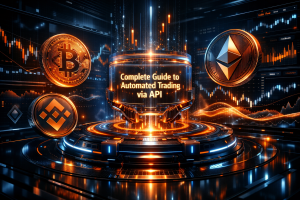
Complete Guide to Automated Trading via API
Automated trading via API is a way to connect a trading platform to a cryptocurrency exchange so that trades are opened and closed automatically according to predefined logic, without manual involvement and without granting access to funds. On B-World, the API is used to retrieve data and place orders, while risk control and strategy management […]
-
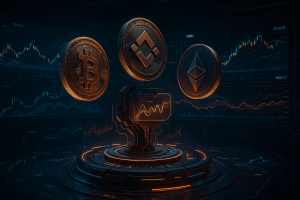
Trading bot with market forecasting
Trading bot with market forecasting capabilities is far more than just an algorithm that follows preset rules. It employs machine learning techniques, neural networks, statistical modelling, and historical market data to build probabilistic models of price behaviour. Such a bot can “learn” from past market situations and make decisions based not only on current data […]
-
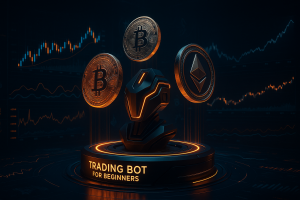
Trading bot for beginners
In the world of finance, an increasing number of people are eager to try their hand at trading. Some are attracted by the prospect of making money, while others are drawn by curiosity about the markets and strategies. However, a beginner who first opens a chart filled with lines and candles can quickly become overwhelmed. […]
-
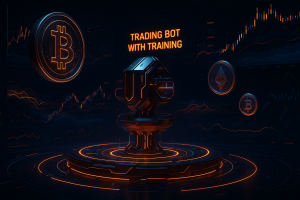
Trading bot with training
A trading bot is a software programme that automates the trading of assets (stocks, cryptocurrencies, futures, etc.). Self-learning bots are capable of analysing data, identifying patterns, and adjusting their strategies based on experience. Unlike traditional algorithmic bots, they don’t follow strictly predefined rules; instead, they can modify their behaviour according to new information. Data collection […]
Latest news
-

Complete Guide to Automated Trading via API
Automated trading via API is a way to connect a trading platform to a cryptocurrency exchange so that trades are opened and closed automatically according to predefined logic, without manual involvement and without granting access to funds. On B-World, the API is used to retrieve data and place orders, while risk control and strategy management […]
-
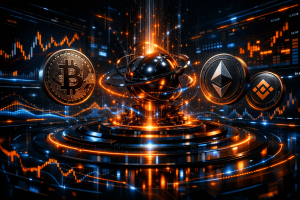
Bot that trades on an exchange
A trading bot is a program capable of automatically analysing the market and executing trades based on predefined algorithms. This technology is reshaping the traditional perception of trading and makes it possible to generate income even for those without deep knowledge of economics. Developing and using such a bot requires not only technical skills but […]
-

DOT
DOT is the native token of the Polkadot ecosystem – a next-generation blockchain designed to unite multiple independent networks into a single decentralised infrastructure. Unlike traditional cryptocurrencies, which operate within a single blockchain, Polkadot enables different networks to interact with one another, exchange data and resources, without sacrificing security or speed. DOT plays a central […]
-
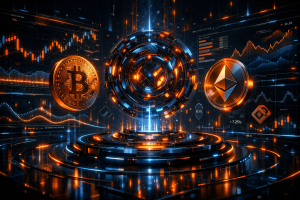
Forex bots
The Forex market is the largest financial marketplace in the world, with daily trading volumes exceeding $6 trillion. It is open to everyone – from banks and investment funds to retail traders. Yet the key question many people ask is simple: can you really make money here? The answer is yes – with the right […]

